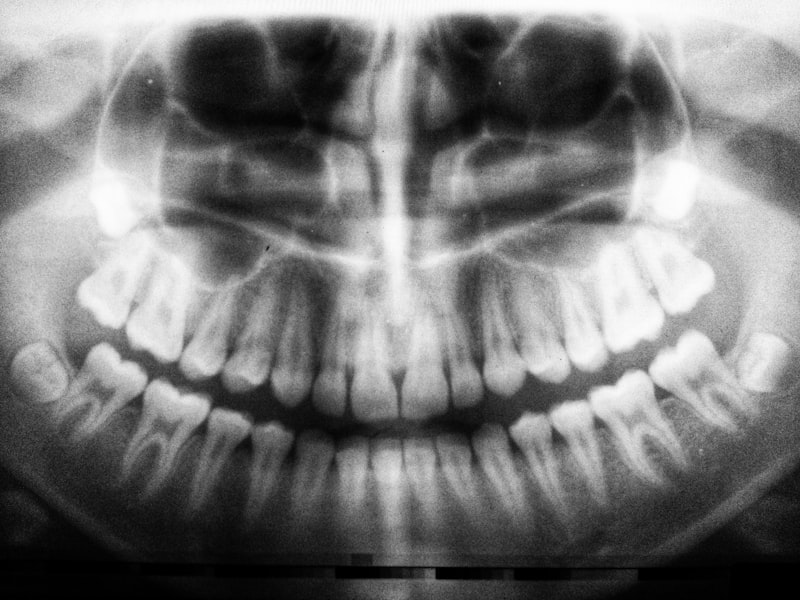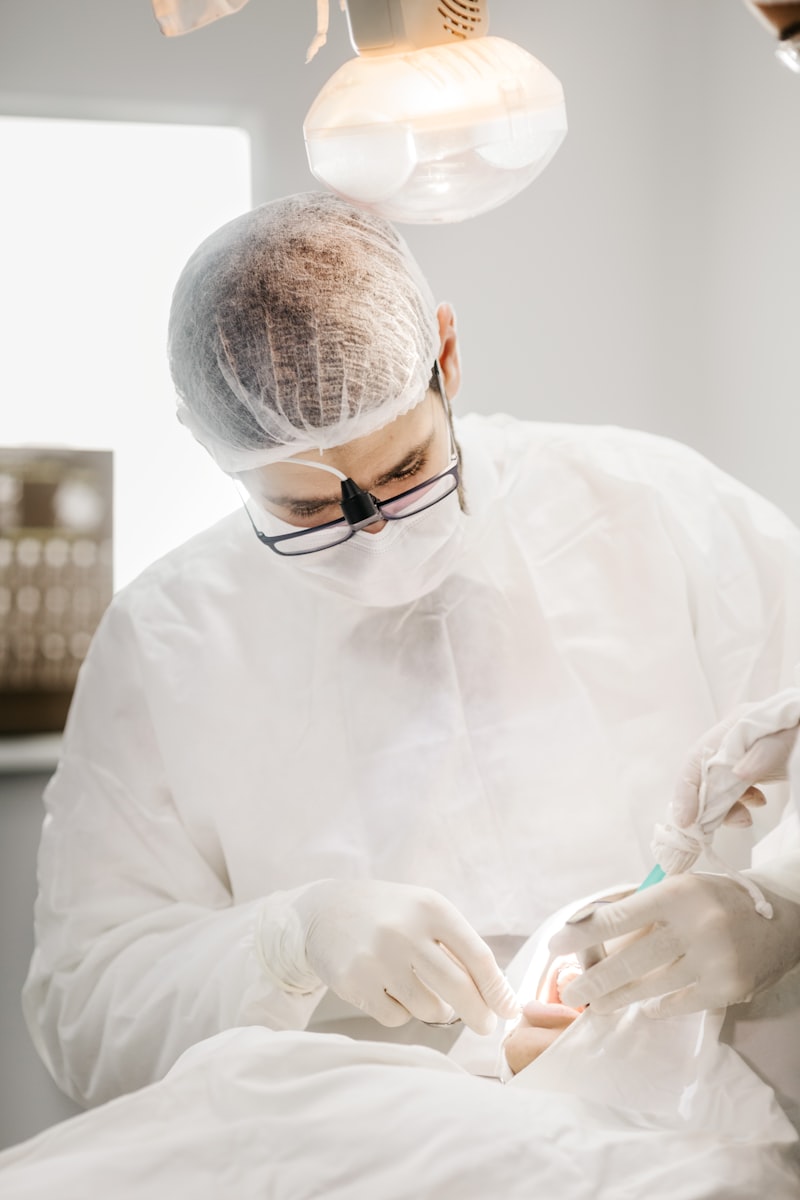Dental abscesses can be a real pain – literally. Imagine this: you’re enjoying your favorite ice cream, and suddenly, there’s a sharp, throbbing ache in your tooth that just won’t quit. Chances are, you might be dealing with a dental abscess. But fear not! Understanding how to prevent and treat these pesky infections can save you from a world of dental discomfort.
Prevention is key when it comes to dental abscesses. One of the most effective ways to ward off these infections is by maintaining good oral hygiene. Brushing your teeth twice a day and flossing daily helps remove food particles and plaque that can lead to tooth decay and abscesses. Remember, a clean mouth is a happy mouth!
Another important step in preventing dental abscesses is to watch what you eat. Sugary and starchy foods can contribute to tooth decay, which in turn increases the risk of abscesses. Opt for a balanced diet rich in fruits, vegetables, and lean proteins to keep your teeth and gums healthy.
Regular dental check-ups are also crucial. Dentists can spot signs of tooth decay or gum disease early on, before they have a chance to develop into abscesses. Plus, professional cleanings help remove stubborn plaque and tartar that your toothbrush might miss.
Now, let’s talk treatment. If you suspect you have a dental abscess – characterized by pain, swelling, and possibly a fever – it’s important to see your dentist right away. They may prescribe antibiotics to clear up the infection and recommend a root canal or tooth extraction to remove the abscess and prevent it from coming back.
Remember, dental abscesses are no laughing matter. By taking proactive steps to prevent them, like practicing good oral hygiene, watching your diet, and seeing your dentist regularly, you can keep your smile healthy and pain-free for years to come. So, next time you reach for that ice cream, you can enjoy it without the worry of a dental emergency!
Unlocking the Secrets: Effective Ways to Prevent Dental Abscesses
Dental abscesses can be painful and disruptive, but did you know there are effective ways to prevent them? Understanding these strategies not only promotes better oral health but also helps avoid unnecessary discomfort. Let’s delve into some key practices that can keep dental abscesses at bay.
Maintaining impeccable oral hygiene stands as the foremost defense. Brushing your teeth twice daily with fluoride toothpaste and flossing regularly removes plaque buildup, which is a primary cause of abscesses. These simple habits not only freshen breath but also protect against harmful bacteria lurking in the mouth.
Regular dental check-ups are crucial. Dentists can detect early signs of potential abscesses and treat them before they escalate. Professional cleanings every six months further ensure that any plaque or tartar buildup is promptly addressed, reducing the risk of abscess formation.
Watching what you eat also plays a role. A balanced diet rich in fruits and vegetables strengthens the immune system, making it easier to fight off infections. Limiting sugary snacks and beverages helps prevent tooth decay, which can lead to abscesses over time.
Are you prone to gum disease? Treating it promptly reduces the likelihood of abscess formation. Gum disease weakens the gums, making it easier for bacteria to penetrate and cause infections. Addressing any signs of gum disease early can significantly lower your risk of developing an abscess.
Preventing dental abscesses involves a combination of proactive oral hygiene, regular dental visits, a healthy diet, and prompt treatment of any oral health issues. By adopting these practices, you not only safeguard your smile but also contribute to your overall well-being. Take charge of your dental health today!
The Ultimate Guide to Identifying and Treating Dental Abscesses
Have you ever experienced a sudden, throbbing pain in your mouth that just won’t go away? It could be a dental abscess, a serious condition that requires prompt attention. Dental abscesses are painful infections caused by bacteria, often resulting from tooth decay or gum disease. They can occur either around the root of a tooth (periapical abscess) or in the gum tissue (periodontal abscess).
Identifying a dental abscess usually involves recognizing common symptoms such as persistent toothache, swelling of the gums, sensitivity to hot or cold foods, and even fever. Sometimes, there may be a visible pimple-like bump on the gums, indicating a pocket of pus. If you experience any of these symptoms, it’s crucial to seek dental care immediately to prevent the infection from spreading further.
Treatment for a dental abscess typically involves draining the pus and eliminating the infection. Your dentist may perform a root canal to remove the infected pulp or provide an incision and drainage procedure for gum abscesses. Antibiotics are often prescribed to help clear the infection and prevent it from returning.
Preventing dental abscesses starts with good oral hygiene practices. Brushing your teeth twice a day, flossing daily, and visiting your dentist regularly for check-ups and cleanings can significantly reduce your risk. Avoiding sugary foods and beverages also helps maintain oral health.
Ignoring a dental abscess can lead to serious complications, such as the infection spreading to other parts of the body. So, if you suspect you have a dental abscess, don’t delay treatment. Your dentist can provide the necessary care to relieve your pain and ensure your oral health remains in top shape.
Top 5 Home Remedies That Soothe Dental Abscess Pain Instantly
-
Saltwater Rinse: A simple yet highly effective remedy is rinsing your mouth with warm saltwater. Salt has natural antiseptic properties that can help reduce inflammation and fight infection. Mix a teaspoon of salt in a glass of warm water, swish it around your mouth for about 30 seconds, and then spit it out. Repeat several times a day to help ease the pain and promote healing.
-
Garlic: Garlic is known for its antimicrobial and pain-relieving properties, making it a valuable remedy for dental abscesses. Crush a clove of garlic to release its juices, then apply it directly to the affected area. Alternatively, you can chew a garlic clove slightly to release its juices around the painful tooth. It might sting a bit initially, but it can significantly alleviate pain and combat infection.

Cold Compress: Using a cold compress on the outside of your cheek can help numb the pain associated with a dental abscess. Wrap a few ice cubes in a thin cloth and apply it to the affected area for 15-20 minutes. This can reduce swelling and provide temporary relief from throbbing pain.
-
Peppermint Tea: Peppermint tea has soothing properties that can help alleviate dental abscess pain. Brew a cup of peppermint tea and allow it to cool down until it’s warm but comfortable to sip. Peppermint contains menthol, which acts as a natural analgesic to numb pain and reduce discomfort.

Cloves or Clove Oil: Cloves contain eugenol, a natural antiseptic and anesthetic that can help relieve tooth pain. You can apply a small amount of clove oil directly to the affected tooth using a cotton ball or swab. If you don’t have clove oil, you can also place a whole clove near the painful area and gently bite down to release its oils.
These home remedies can provide immediate relief from dental abscess pain, but it’s essential to seek professional dental care as soon as possible. Dental abscesses require treatment by a dentist to fully resolve the underlying infection and prevent complications. In the meantime, these remedies can help manage the pain and discomfort effectively.
Beyond Brushing: Innovative Techniques for Preventing Dental Abscesses
When it comes to oral health, brushing alone might not always be enough to ward off potential issues like dental abscesses. These painful infections can develop from untreated cavities or gum disease, causing swelling, intense pain, and even fever if left unchecked. However, there are innovative techniques beyond basic brushing that can significantly reduce the risk of dental abscesses.
One effective method is incorporating an antimicrobial mouthwash into your daily routine. Unlike regular mouthwashes, antimicrobial solutions are specifically designed to target harmful bacteria that can lead to infections. By rinsing with such a mouthwash after brushing and flossing, you can reach areas of the mouth that your toothbrush might miss, further reducing the chance of bacterial buildup and subsequent abscess formation.
Another breakthrough in dental care is the use of interdental brushes or water flossers. These tools are invaluable for cleaning between teeth and along the gum line where food particles and plaque tend to accumulate. By dislodging debris and bacteria from these hard-to-reach areas, you not only improve overall oral hygiene but also minimize the risk of abscess-causing infections.
Furthermore, maintaining a balanced diet plays a crucial role in preventing dental abscesses. Foods high in sugar and carbohydrates can fuel bacterial growth in the mouth, leading to plaque formation and decay. On the other hand, incorporating plenty of fresh fruits and vegetables can help stimulate saliva production, which naturally cleanses the mouth and neutralizes acids that contribute to tooth decay.
Regular dental check-ups are also essential. Dentists can detect early signs of cavities or gum disease that may eventually lead to abscesses. They can provide professional cleaning and, if necessary, recommend treatments to address any underlying issues before they escalate.
By integrating these innovative techniques into your daily oral care routine, you can take proactive steps towards preventing dental abscesses and maintaining a healthy smile for years to come.
This article aims to inform readers about effective strategies beyond traditional brushing to prevent dental abscesses, incorporating SEO principles for optimization while maintaining readability and engagement.
Frequently Asked Questions
How can I prevent dental abscesses from developing?
Learn effective strategies to prevent dental abscesses, including maintaining good oral hygiene by brushing and flossing daily, scheduling regular dental check-ups, and addressing any dental issues promptly to avoid infection.
What are the common symptoms of a dental abscess?
Learn about the common symptoms associated with a dental abscess, including severe toothache, sensitivity to hot or cold temperatures, swelling of the face or gums, and fever. Understanding these symptoms can help identify and seek treatment for a dental abscess promptly.
When should I seek immediate dental care for an abscess?
Immediate dental care for an abscess is crucial if you experience severe, persistent pain, swelling of the face or jaw, fever, or difficulty breathing or swallowing. These symptoms may indicate a serious infection that requires prompt treatment by a dentist to prevent complications.
Are there any home remedies to alleviate dental abscess pain temporarily?
Discover effective home remedies to temporarily relieve dental abscess pain. Learn how to manage discomfort with simple, accessible solutions.
What are the treatment options for a dental abscess?
Learn about the various treatment options available for a dental abscess, including antibiotics, drainage procedures, and root canal therapy. Early treatment is crucial to prevent complications and relieve pain.


